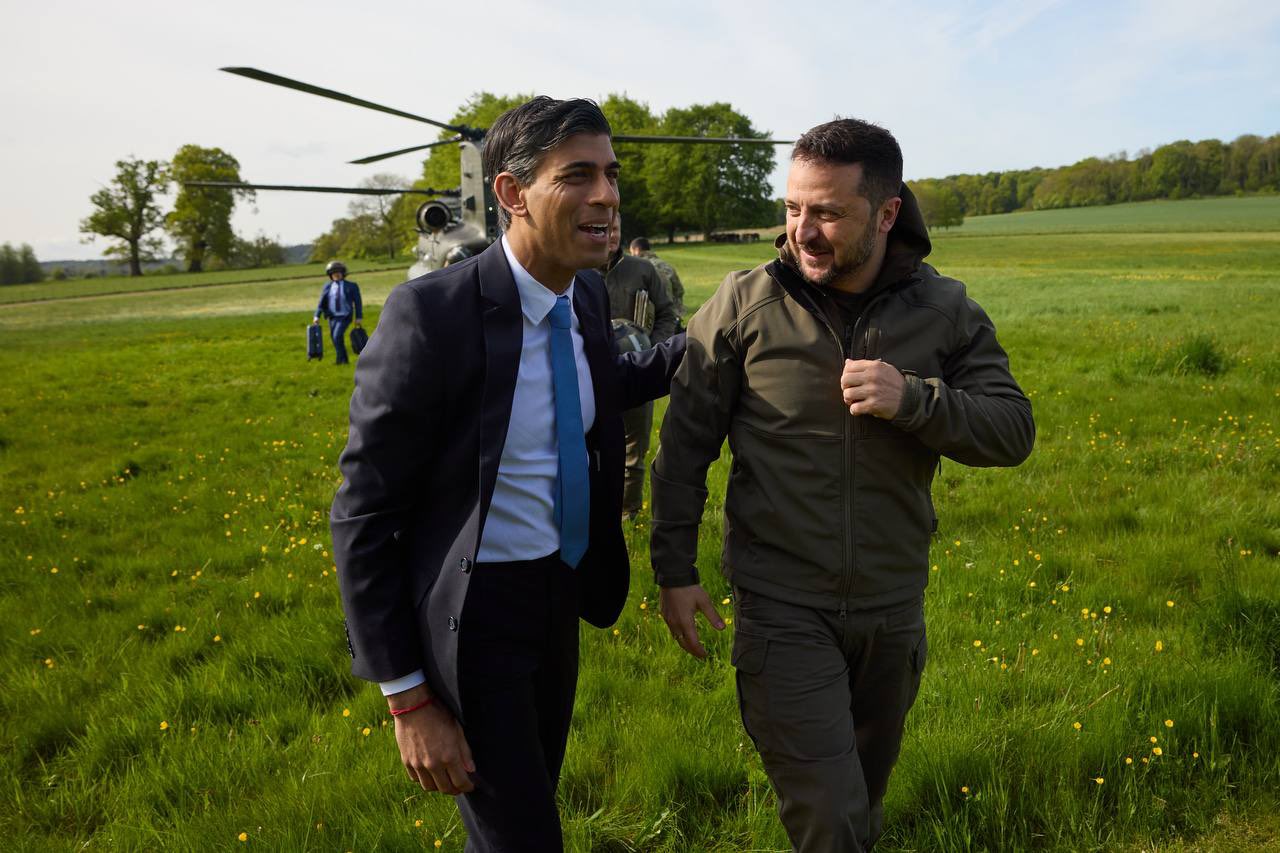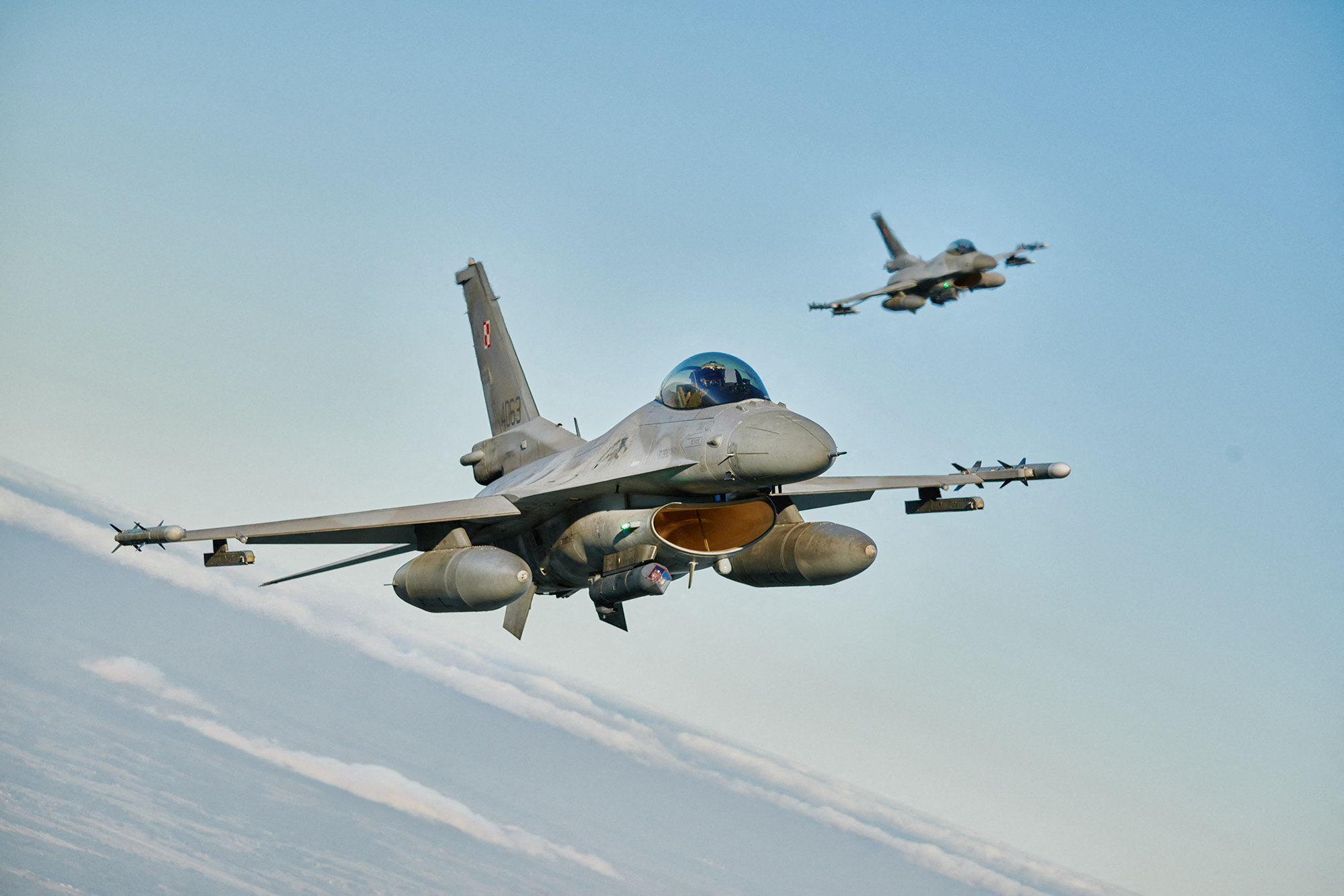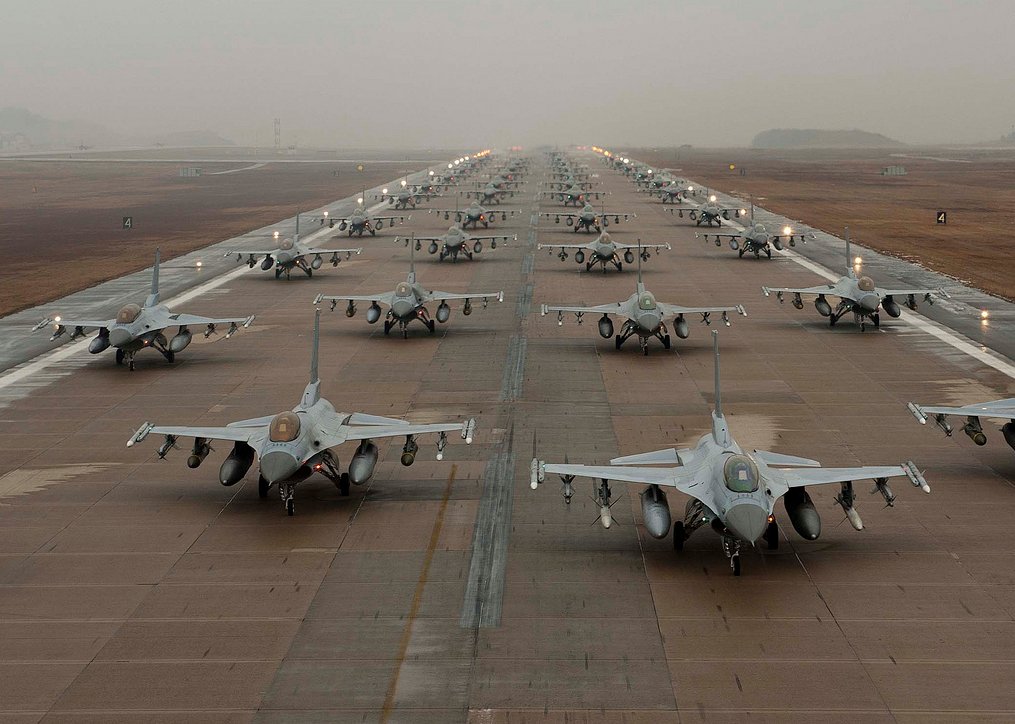The ongoing conflict in Ukraine is taking yet another dramatic turn. Ukraine’s lobbying for F-16 fighter jets has picked up momentum, reflecting a bid to reclaim control over its skies from the aggressive Russian invasion. This development presents not only a significant military shift, but also a complex geopolitical puzzle with enormous stakes.
Ukrainian officials have upped the ante in their campaign for US-made F-16s, citing an urgent need to protect against increasingly potent Russian missile and drone attacks. Thursday’s “unprecedented” series of missile attacks on Kyiv, described by Serhii Popko, head of Kyiv’s civil and military administration, was only the latest in a slew of increasingly audacious Russian assaults.
The barrage was highlighted by the launch of six hypersonic missiles aimed at destroying Ukraine’s Patriot air defense systems. These recent developments underscore Ukraine’s growing need for advanced air power capabilities, which F-16s could potentially provide.
Against this backdrop, UK Prime Minister Rishi Sunak revealed the formation of an “international coalition,” comprising the UK and the Netherlands, to procure the jets for Ukraine and train Ukrainian pilots on these advanced 4th generation fighters.
Earlier in March, the US evaluated two Ukrainian pilots at a military base in Tucson, Arizona. The session was aimed at assessing their skills using flight simulators and estimating the time they would need to master US military aircraft, including F-16s. The question of training Ukrainian pilots remains open, with possibilities ranging from training by US allies with F-16s to Lockheed Martin, the aircraft’s manufacturer, acting as a private contractor.
However, this proposition would likely necessitate some degree of US involvement, which, given the recent congressional pressure to supply the jets, may not be out of the question. On Wednesday, a bipartisan group of US lawmakers penned a letter to President Joe Biden asserting that the transfer of F-16s to Ukraine was “essential” for enabling Kyiv to “fully defend their nation against Russia’s unprovoked, illegal, and brutal invasion.”
Critically, the question of procuring F-16s for Ukraine is expected to feature prominently at the upcoming NATO summit in Vilnius, Lithuania, in July. The eventual outcome could mark a dramatic shift in the international response to the Ukraine-Russia conflict.
However, there are counterarguments. Some US officials remain skeptical about the proposal, citing Russia’s formidable anti-aircraft systems. They note that Ukrainian fighter planes have not been conducting many air missions, primarily due to the high risk posed by Russia’s defenses.
Despite this, the Ukrainians remain optimistic. There’s a belief in Kyiv that with enough public pressure, they can secure weapon systems once considered red lines by the West. HIMARS rocket artillery, battle tanks, and Patriot batteries, once deemed off-limits, are now either in Ukraine or en route.

UK’s stance on the F-16 issue appears to have evolved as well. After expressing reservations in January about the practicality of sending such sophisticated aircraft into Ukraine, London now seems to be leaning towards cooperation with Kyiv.
On Monday, Ukrainian President Volodymyr Zelensky confirmed that Ukraine and the UK were “actively moving forward” on a plan to procure the fighter jets. “We need F-16s,” affirmed Andriy Yermak, head of the office of the Ukrainian president, expressing gratitude to the allies for working towards training Ukrainian pilots.

In the face of escalating Russian aggression, Ukraine’s pursuit of F-16 fighter jets signifies a new chapter in this conflict. It points to an international community increasingly willing to assist Ukraine militarily, hinting at a reshaping of alliances and political dynamics.
While F-16s may not be a silver bullet to end the conflict, their procurement could certainly shift the military calculus. In this high-stakes geopolitical chess game, their presence might provide Ukraine with a strategic advantage in air combat and serve as a robust deterrent to further Russian aggression.
This development brings with it an urgent need for careful analysis and informed decision-making. The potential acquisition of F-16s by Ukraine will require a delicate balance of power and a thorough understanding of the cascading geopolitical implications.

The world watches with bated breath as the players move their pieces, waiting to see how this strategic play unfolds in the coming months. Amid the uncertainty, one thing is clear: the stakes in this conflict have never been higher.
©world-news.biz
